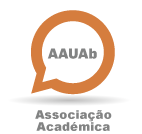Distance Learning has driving educational change and substantially expanding the number of students in higher education, allowing global access to education. It is in this context that Virtual Mobility is an innovative form of internationalization, whose strategic value is recognized as an engine of development, knowledge and cultural learning.
Expanding the notion of mobility as a structuring and founding idea of higher education, Virtual Mobility adds new possibilities to the exchange of students, teachers and employees, allowing greater flexibility in the ability to overcome territorial boundaries and in the transformation of personal, social and cognitive experiences that would otherwise be impossible to accomplish.
In a higher education institution such as Universidade Aberta, a distance education university, most students are adults with professional and familiar commitments, that inhibit them from assuming a physical mobility to undertake a regular academic semester abroad, besides the financial constraints some students have to face.
Recently, the European Union has set up a specific funding line to support Virtual Mobility that strengthens it as a form of international learning and the acquisition of digital cross-cultural autonomy and networked skills. Further support and programs are needed .
This European recognition acquires an even greater value considering the pandemic situation the world is living in. Virtual Mobility offers a solution for facing these new challenges along with benefiting from an intercultural experience and knowledge share, either profited fully at a distance or mixing distance moments with presence-based periods for both students and staff.
At the Universidade Aberta, the strategic interest of Virtual Mobility has started in 2011, through the participation in pioneering projects (for instance, PIMA-AIESAD in 2012/2013 and Erasmus Open Universities Virtual Mobility in 2016) and the implementation of institutional partnerships that promote the virtual exchange of students, specially in Lusophone Space and mainly with Brazilian universities. Several articles on this subject were published and can be accessed in the Open Repository of Universidade Aberta, some of which highlight the positive evaluation of the students involved.
Universidade Aberta is therefore deeply engaged in expanding Virtual Mobility in the present and for the future.














